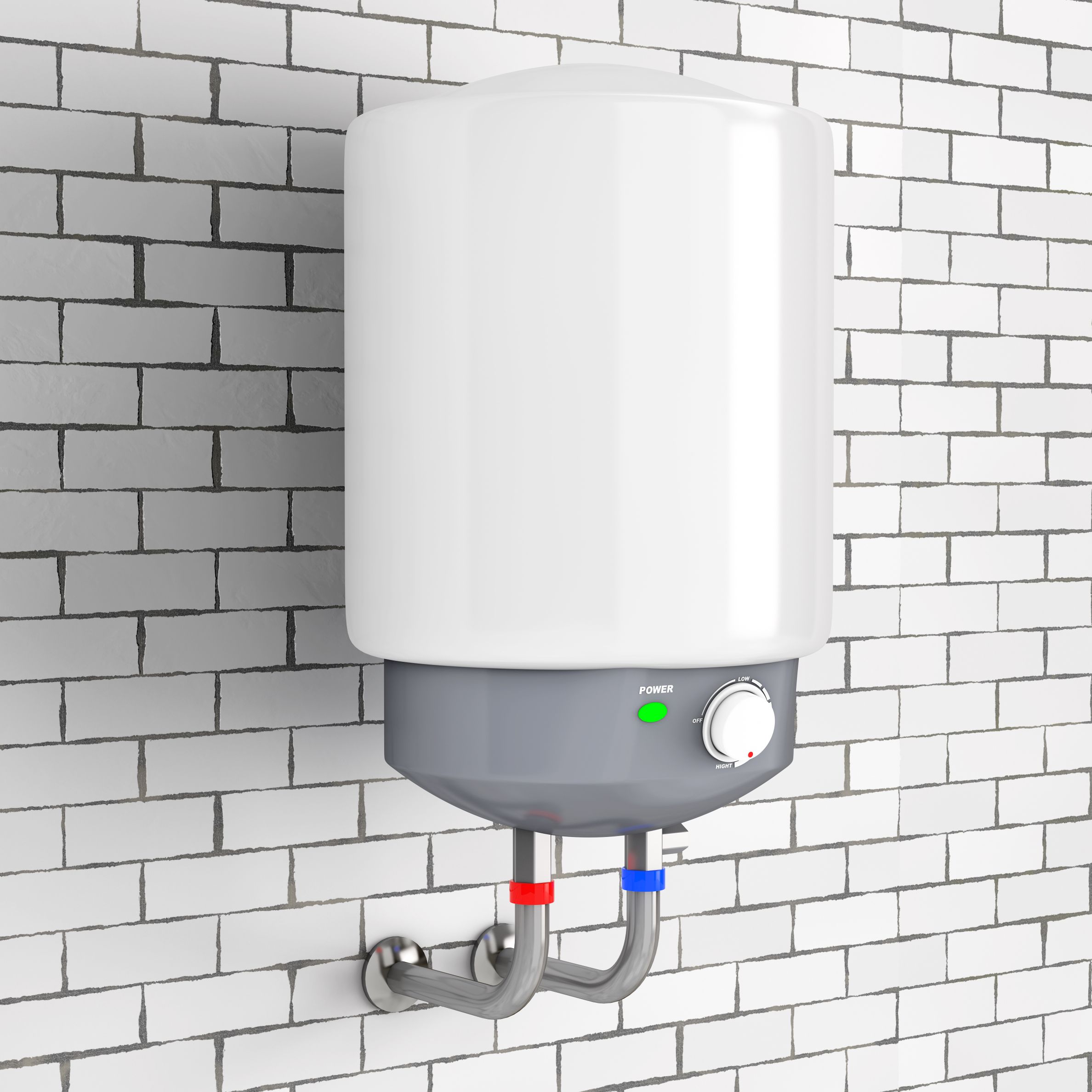Water Heaters Basics
It’s such a frustration when home water heaters die and need to be replaced. It never seems to happen at a convenient time. But when it happens, it’s a good time to update to more efficient machines.
There are five types of water heaters. There are storage tank, tankless, solar heated, geothermal, and heat pump heaters. Storage heaters come as gas water heaters and electric water heaters. They are the traditional home purchaser. Relatively new to the scene are tankless water heaters which are reported to help customers save on energy costs.
Electric water heaters use a heating element to heat hot water. Gas water heaters use a gas-fired element. Both use storage tanks to hold water until hot water is needed then pumps it to the needed location. The tank takes in cold water at the bottom and releases hot water through the topwhen needed. These types of water heaters maintain hot water at a constant temperature.
Heat pump water heaters also have a storage tank. However, it pulls in heat from air around it and dumps it intothe storage tank to heat the water. This is much like how a refrigerator pulls heat from inside it and dumps the air outside. Geothermal heat pump water heaters works in a similar way. It pulls heat from the ground during cold months and from inside air in the warm months.
The next type of water heaters are tankless water heaters. Here, the water is heated only when needed. When the hot water is turned on, tankless water heaters heat water coming into its system, and then sends it to where it’s needed. These on-demand heaters come in electric-fired and gas-fired versions.
The last type of water heater is also a storage tank system. It’s the solar-powered water heater. Here, water pumps through solar collectors to heat water then it’s pumped through the house to where it’s needed, and then held in a storage tank.
So, how do you decide on what’s best for your home? Each has its benefits and drawbacks. With concerns for energy savings, fuel types, efficiency, and the environment, there’s more to think about than the types mentioned above.
Consumer Research, consumerresearch.com, recommends these guidelines First, decide what’s the most important feature you want in your water heater. Is it economics or the environment? Is it efficiency or fuel type? Most consumers consider utility bills as a major factor, then other factors second. Installation costs are dependent upon where you live. Involving a reliable plumber may be useful in determining the best prices.
Once you decide what’s most important, consider fuel type followed by the first hour rate (FHR). FHR is the number of gallons of hot water a system can produce in an hour. This is an important factor particularly if you have a large family. FHR is shown on all heater types.
The next factor to consider is the energy factor (EF). This federal number measures how efficiently a heater can turn energy into hot water. The number goes from .5 to 2.4. The higher the rating, the more efficient the heater and goes to utility bill savings.
Highlights of the water heater types are:
Most Energy efficient: Solar water heater
Most Economical: Electric water heater
Highest Energy Credit: Heat pump water heater
Longest Lasting: Tankless water heater
It’s surprising to note that gas water heaters weren’t notable. Although they cost a little more than electric water heaters, their operating costs are less in some areas of the country. With concerns about the environment, keep in mind that solar water heaters have the smallest carbon footprint. It’s also one of the most expensive to install in terms of costs. But this can be offset with federal energy credits.
The choices in water heaters are more plentiful than in years past. They are more efficient, more environmentally friendly, and more economical to operate.
Category: Water Heaters - Dealers
Business News
Popular Posts
- How to become a strategic thinker
- how to balance your mind and achieve greater happiness
- Building a Positive Attitude - Strategies for a Happier and More Fulfilling Life
- Overcoming Negative Thoughts - Strategies for a Positive Mindset
- Cultivating Resilience and Mental Toughness - Keys to Thriving Amidst Lifes Challenges
- 50 positive affirmations to be read every day
- Mind Balance - for those who dare to redefine their limits
- 50 ways to be more like Jesus in everyday life
- Take the Wheel-Navigating Life Beyond the Screen
- Unlocking Potential - The Power of Personality Assessment in Overcoming Obstacles
- The Imperative of Unity - Why SmartGuy and Coexistence is Key to Global Survival
- Universal Pursuit of Happiness - Wisdom from World Religions
- Bridging Divides - Understanding Barriers to Unity and Happiness in World Religions
- A Cautionary Vision - The Grim Future of a Divided World Without Love and Balance
- A Universal Prayer for Peace and Understanding Embracing Diverse Faiths
- Preparing Kids for Adulthood - 15 Vital Skills They Wont Learn in School
- Cultivating Key Skills to Overcome Anti-Semitism and Hate
- Jerusalem's Lesson - A Blueprint for Global Harmony Among Diverse Faiths
- Navigating Diversity - Jerusalem's Tactical Approach to Interfaith Harmony
- Living the Teachings of Jesus - 100 Lessons for a Compassionate and Faithful Life
